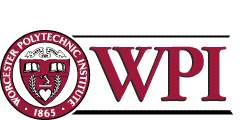

| Percent |
Activity |
|
5 % |
Quiz on the introductory material in Session 1. See the description of clicker tests below for the policies and procedures. |
| 45
% |
Three equally-weighted exams. See the calendar below for the material covered in each exam. See the description of clicker tests below for the policies and procedures. |
| 24 % |
Mastering
Physics prepwork and homework,
due mornings at 8:00 AM.
See the Mastering Physics site for the due dates. The lowest two
scores will be dropped; late work will not accepted for
points, although you may (re)work them for practice. (There are
primer and review problem sets as well. However, these are not
for credit.) See your Canvas site for the Course ID. Each
assignment is worth 1 % of your final grade. |
| 12 % |
Activity worksheets, as
follow-ups to
the
in-class hands-on activities. Submission
through Canvas of a PDF or XLSX file
by 8:00
AM the
morning after a studio session. Lowest score dropped.
Each worksheet is worth 1 % of your final grade. Make-ups are not
possible. |
| 10 % |
Lab reports. Submission
through Canvas of a PDF file by 8:00
AM the morning after a lab session. Each lab report is
worth 2 % of your final grade. Make-ups are possible only through
prior arrangement with
your lab instructor. |
| 4
% |
Clicker score. During a
studio session, you earn one point for answering a question and two
points for
answering correctly. Failure to return your loaned clicker at the
end of
the
term results in a $75
charge to and a hold on your account. Lowest two daily scores dropped.
Make-ups are not
possible. |
| Bonus |
Diagnostic tests. In order
to assess how well you know mechanics at the beginning of the course,
as well as how much you learn during the course, you must take a
diagnostic test at the beginning and at the end of the course.
For incentive to do well, each question that is correctly answered is
worth a bonus clicker point. |
| Week of | Early
in week |
Wednesdays | Late
in week |
Lab
in OH 208 |
19.August.2018 |
Session # What's due Topic Sections in book |
Session
1 PW1, WS1, HW1, PR1, PR2 Intro 1.1-1.9 |
Diagnostic Test 1 Lab rules Lab 1 on sig figs E-CLASS survey |
|
26.August
|
Session 2 PW2, WS2, RV1, HW2 Kinematics I 2.1-2.6 |
QUIZ on Session 1 |
Session 3 PW3, WS3, RV2, HW3 Kinematics II 3.1-3.5 |
Lab 2 on intro to graphing motion |
2.September |
-- PR3, PR4 Labor Day No classes |
Practice Set 1 Retests of Quiz |
Session
4 PW4, WS4, RV3, HW4 Dynamics I 4.1-4.6, 5.1 |
No lab because of "flip" day this week. |
9.September |
Session 5 PW5, WS5, RV4, HW5 Dynamics II 5.2-5.5 |
EXAM 1 on Sessions 2-4 |
Session 6 PW6, WS6, RV5, HW6 Energy I 6.1-6.4 |
Lab 3 on graphing 1D & 2D motion |
16.September |
Session
7 PW7, WS7, RV6, HW7 Energy II 7.1-7.5 |
Practice Set 2 Retests of Exam 1 |
Session
8 PW8, WS8, RV7, HW8 Impulse-Momentum 8.1-8.4 |
Lab 4 on graphing bouncing motion |
23.September |
Session 9 PW9, WS9, RV8, HW9 Torque 10.1, 11.1-11.3 |
EXAM 2 on Sessions 5-8 |
Session 10 PW10, WS10, RV9, HW10 Rotational kinematics I 9.1-9.3 |
Lab 5 on graphing motion of two objects |
30.September |
Session
11 PW11, WS11, RV10, HW11 Rotational kinematics II 9.4-9.6 |
Practice Set 3 Retests of Exam 2 |
Session
12 PW12, WS12, RV11, HW12 Rotational dynamics 10.2-10.4 |
Diagnostic Test 2 E-CLASS survey |
7.October |
Session 13 PW13, WS13, RV12, HW13 Angular momentum 10.5-10.6 |
EXAM 3 on Sessions 9-13 |
-- RV13 Due to time constraints, sadly, no retests of Exam 3 are possible. |
![[top]](PH111X.C17_files/top.gif) |
Top of this page |
![[physics]](PH111X.C17_files/gyro.gif) |
WPI Department of Physics Home page |
![[WPI]](PH111X.C17_files/seal.gif) |
WPI Home page |